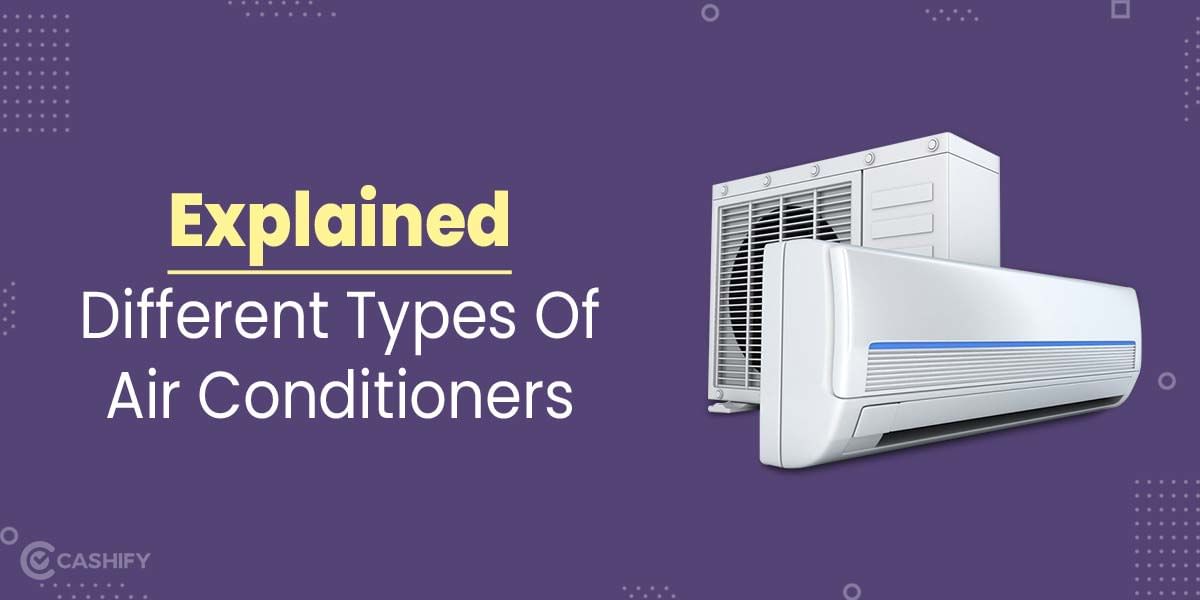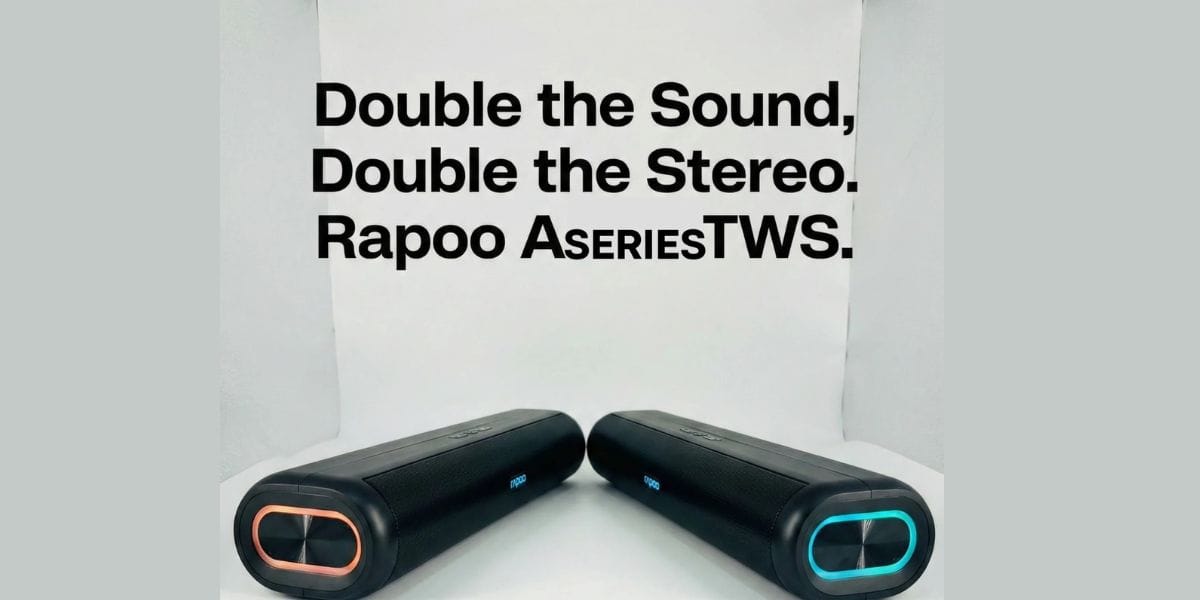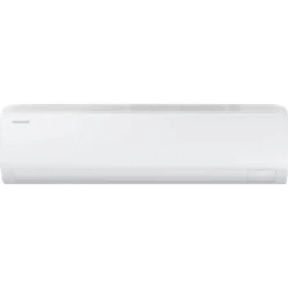The appliance shopping process is already a bit confusing as when you are out there to buy an AC, Refrigerator, geysers, etc, there is a lot to look out for. And with so many new features and technologies to consider, you also see those star rating stickers on the appliance. These rating stickers are known as BEE Star Labels and range from one to five stars. The highest five-star rating label means that the appliance is highly energy efficient.
And here in this article, we’ll decode the BEE Star Rating system and other jargon like ISEER and EER so you can make informed choices about the products you buy.
Also Read: 5 Best LG Double Door Refrigerators In India August 2022
What is EER, ISEER & BEE Star Label?
The Bureau of Energy Efficiency (BEE) is an Indian governmental agency working under the Ministry of Power. The BEE has a grading system called the Energy Efficiency Ratio (EER) for home appliances. And specifically for Air-Conditioners, there is a separate rating known as BTU ( British Thermal Unit). This rates the AC on how fast it can cool the room regardless of the tonnage and capacity of the AC.
Since the cooling capacity of an air conditioner depends widely on the external temperature and various other factors. This EER method of rating was less than ideal and thus ISEER standard was introduced.
The ISEER stands for Indian Seasonal Energy Efficiency Ratio. This is a simple ratio of the total amount of heat the appliance can remove from the room in active cooling mode to the total amount of energy consumed.
What is BEE Star Label?
BEE Star Labels are issued by the Bureau of Energy Efficiency (BEE) and are a voluntary way for manufacturers to label the energy efficiency of an appliance. The label uses stars to show a product’s efficiency, with more stars meaning more efficiency. The purpose of the label is to help consumers save money and energy by choosing the most energy efficient products.
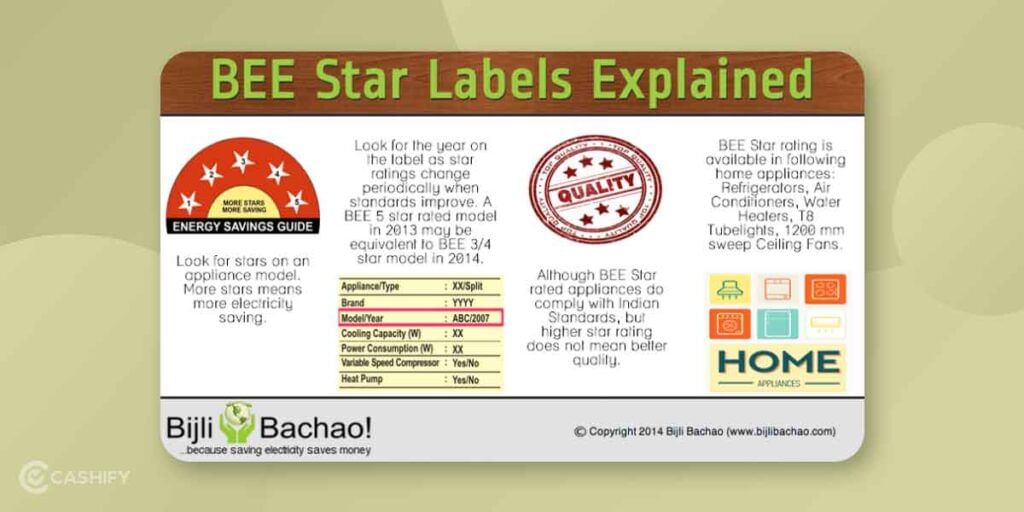
Here are the BEE defined ISEER ratings that are valid from 1st January 2021 to 31st December 2023.
| Star Level | Minimum | Maximum |
| 1 Star | 2.7 | 2.89 |
| 2 Star | 2.9 | 3.09 |
| 3 Star | 3.1 | 3.29 |
| 4 Star | 3.3 | 3.49 |
| 5 Star | 3.5 |
| Star Level | Minimum | Maximum |
| 1 Star | 3.3 | 3.49 |
| 2 Star | 3.5 | 3.79 |
| 3 Star | 3.8 | 4.39 |
| 4 Star | 4.4 | 4.99 |
| 5 Star | 5.0 |
The number of stars on a BEE label is determined by how much energy a product uses compared to similar products that use the same amount of energy. The stars are assigned using a scale of 1 to 5, with 5 being the most efficient. In order to receive a BEE star label, manufacturers must test their products in an accredited lab and submit the results to the BEE for approval.
BEE star labels are voluntary, but many retailers choose to display them on products that have received them. Also, all the manufacturers are officially required to put Star labels as per the “Standards and Labelling Program” introduced in 2006.
When shopping for energy-efficient products, be sure to look for the BEE star label or ask about a retailer’s labeling system to make sure you’re getting the most power-efficient product possible. While BEE star label rating is for AC, Refrigerators, TVs, Electric geysers, and a few more appliances. But the BEE Star rating matters most for air conditioners and Refrigerators as they consume the maximum power.
Also Read: Best CPU Processor for Laptop Ranking List 2022
Importance of BEE and what are their responsibilities?
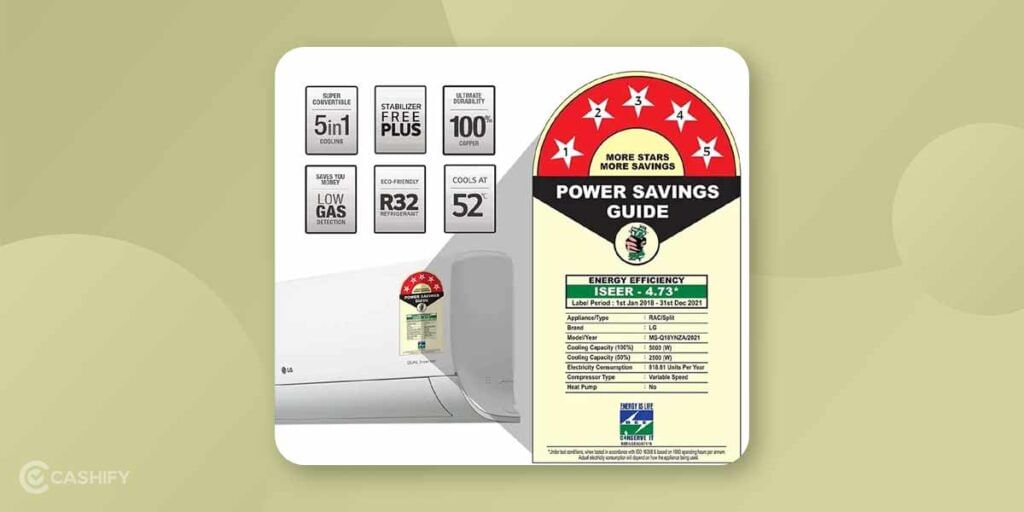
BEE or Bureau of Energy Efficiency acts as an intermediatory body between government, manufacturers, and consumers in achieving the goal of an energy-efficient nation. The main function of BEE is to set norms and standards for energy ratings and act as an enforcement body.
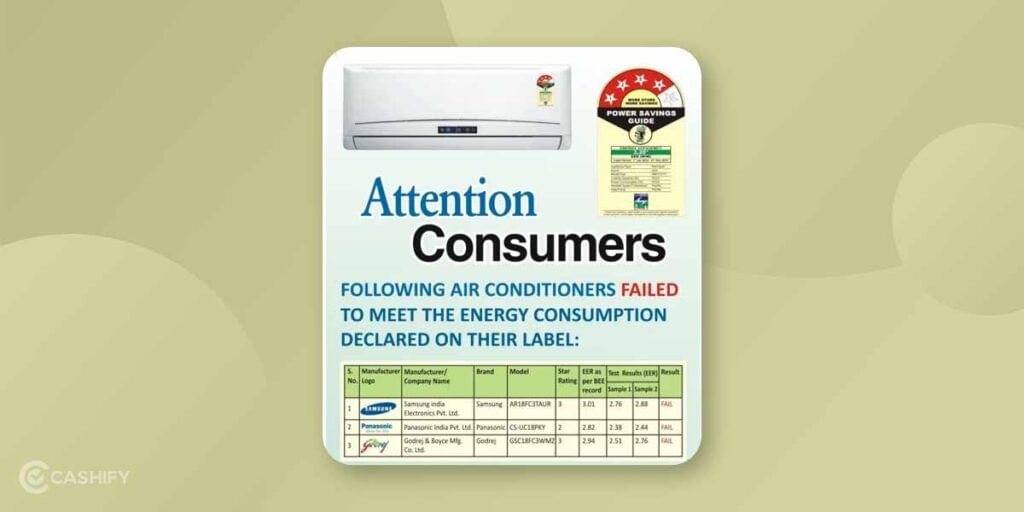
The Bureau of Energy Efficiency conducts random audits to make sure energy efficiency Star Rating standards are being followed. And in case any appliance is found with a fudged efficiency rating. Then BEE holds the right to suspend that particular product from the market.
BEE also audits the appliances and is responsible for certification of appliances and providing them a BEE Star Rating. Apart from this BEE is also responsible to create promotional campaigns to raise awareness amongst consumers. This includes educating consumers about energy efficiency, and star ratings and helping consumers make wise decisions.
How are BEE Star Ratings Calculated?

Every new appliance that is launched in the Indian market has to be tested in a lab accredited by NABL (National Accreditation Board for Testing and Calibration Laboratories). The product testing takes about a few days where the power consumption and efficiency is measured. While the process to determine BEE ratings depends from appliance to appliance and the process might vary.
In 2016 the BEE announced switching to ISEER which is an evolution to SEER to calculate the star ratings for Air Conditioner. This can help give more accurate energy consumption ratings.
While it’s not practical for BEE to test each and every appliance to assign Star Rating to it. It is up to the brands to maintain the rating standards for the products. And BEE can still randomly check a few products in between to assure that the compliances are being followed.
Also Read: TV Buying Guide 2022: How To Choose The Right One?
Why is BEE Star Rating important?
1. Reduced Electricity Bills
The BEE Star rating determines the energy consumption of the appliance. This is an important aspect a consumer should look out for while purchasing any appliance, especially Air Conditioners and Refrigerators. And this is important to get maximum savings on your monthly electricity bill as households might have multiple appliances.
For example, a 5-Star rated 1-ton air conditioner is the most power-efficient air conditioner compared to any other 1-ton air conditioner that is rated less than 5 stars. And this comparison becomes invalid if you compare 5-star rated 1-ton AC to a 2-ton 5-star rated air conditioner or compare the BEE Star Rating of a split air conditioner of the same capacity to a window AC.
2. Good For the Environment

Lower power consumption also helps to save the environment and reduce the energy requirement per household. And as we already know fossil fuels are used to generate electricity in India. And getting a more power-efficient appliance not only saves our electricity bill and even helps save the environment and reduce global warming.
Also Read: AMOLED vs LCD: Detailed Comparison, Which One Is Better?





